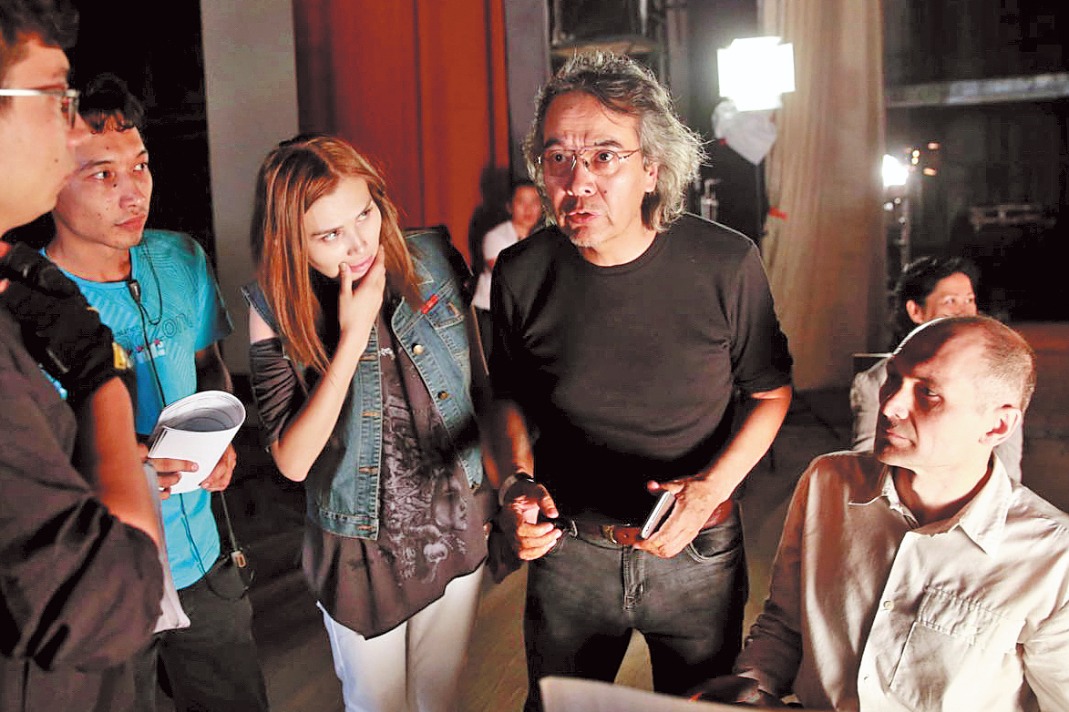Film on 'small enough to jail' Chinatown bank lauded

NEW YORK - It's rare to see a single lawsuit spotlight David vs. Goliath, potential discrimination and the financial crisis altogether, on top of being five years in the making with a $10 million price tag.
But Thomas Sung's Chinatown Abacus bank vs. New York's Manhattan District Attorney is exactly like that.
With a documentary about the lawsuit - Abacus: Small Enough to Jail - nominated for an Oscar, Sung's story has gotten global attention.
Sung, 83, laughed warmly at the first question on being interviewed by Xinhua by phone: "Chinese or English?
"Whichever suits you," he replied.
Sung came to the US at 16 and earned degrees in economics and law before going into real estate investment. He was an immigration lawyer before he founded Abacus Federal Savings Bank in 1984 in Manhattan's Chinatown.
Abacus' goal was to serve the Chinese immigrant community, which had no place to get loans to buy houses and start up small businesses to build a family.
Sung's story has strong parallels to the 1946 film classic It's a Wonderful Life and the beloved hero George Bailey.
Just like Bailey's Building and Loan in Bedford Falls, Abacus has always been a small bank. Growing over the years to six branches, it is nothing compared to the Wall Street giants.
Not many outside the Chinese community knew about Abacus, until it became the only US bank indicted for mortgage fraud in the 2008 financial crisis, with 13 of its employees handcuffed, chained and escorted through a hallway in the Manhattan Criminal Courthouse in a staged perp-walk before the national news media in May 2012.
"To bring them to court is one thing; to chain them up in handcuffs is another," Sung told Xinhua.
Journalists and lawyers observed that nothing like that had ever happened before, not to any other minorities. "I was very much offended," Sung said. "This was discrimination."
Sung said the Manhattan District Attorney's office probably wanted to convict Abacus for fraud, as a way to threaten big banks and fine them more.
Sung said that in banking, reputation is very important; no bank wants to get involved in civil or criminal cases like fraud.
As the old Chinese expression goes, it's like killing a chicken to terrify the monkeys; in other words, it's small enough to jail, too big to fail, Sung added.
Abacus became the only US financial institution to be indicted in the wake of the financial crisis.
The DA's choice of Abacus itself was odd, as many observers pointed out. With $300 million in assets, Abacus made only plain-vanilla housing loans requiring down payments of at least 20 percent.
It never offered subprime residential mortgages. Nor did the bank dabble in mortgage derivatives - the complex financial instruments that blew up in the housing crisis and caused so many banks to require bailouts.
However, the DA probably shouldn't have picked on Abacus to set an example - if Sung was right about its plan.
Abacus and the Sung family are not an easy target at all. Despite his advanced age, Sung still explains the complicated legal process clearly, speaking with the clarity and confidence of a seasoned lawyer.
Both Jill Sung and Vera Sung, his daughters who serve as CEO and director of Abacus respectively, graduated from law school. It was Vera Sung who caught an employee in the act of fabricating a loan application.
Sung said the lawsuit against Abacus had deeper implications. "It threatened the community as a whole. It attacked the Chinese way of conducting business," Sung said.
Living a cash-only culture, immigrants in Chinatown usually lack credit history. But running successful businesses like full-house restaurants, they regularly earn enough money in cash for Abacus to give them loans.
Sung said that not just the Chinese but all immigrants lean heavily on cash. "You can't single out Chinese and say they are bad."
For many, the lawsuit has become a quest to seek a voice for the minority, not just for the innocent. For Sung, although he understood from the beginning the government had much more resources than civilians, he never thought of giving up.
'I'm willing to sacrifice and fight. It is a mission always in mind."
Every year, Sung and his wife usually spend winter in Florida. But in 2015, they didn't go. It was about time for the lawsuit to wrap up.
Back then, no one was 100 percent confident that the Sung family could win. After all, there were more than 200 counts of indictments, and Abacus had to be found not guilty for every one of them.
On June 4, 2015, after several rounds of discussions and delays, the jury finally decided Abacus was not guilty. When Sung read the paper the next day, as captured in the documentary film, he almost cried.
Despite the verdict, the case took a heavy toll on Sung and his family.
"We lost a lot of business opportunities because of the investigation and trial," Sung said. "And defending the case cost us about $10 million."
Xinhua

































